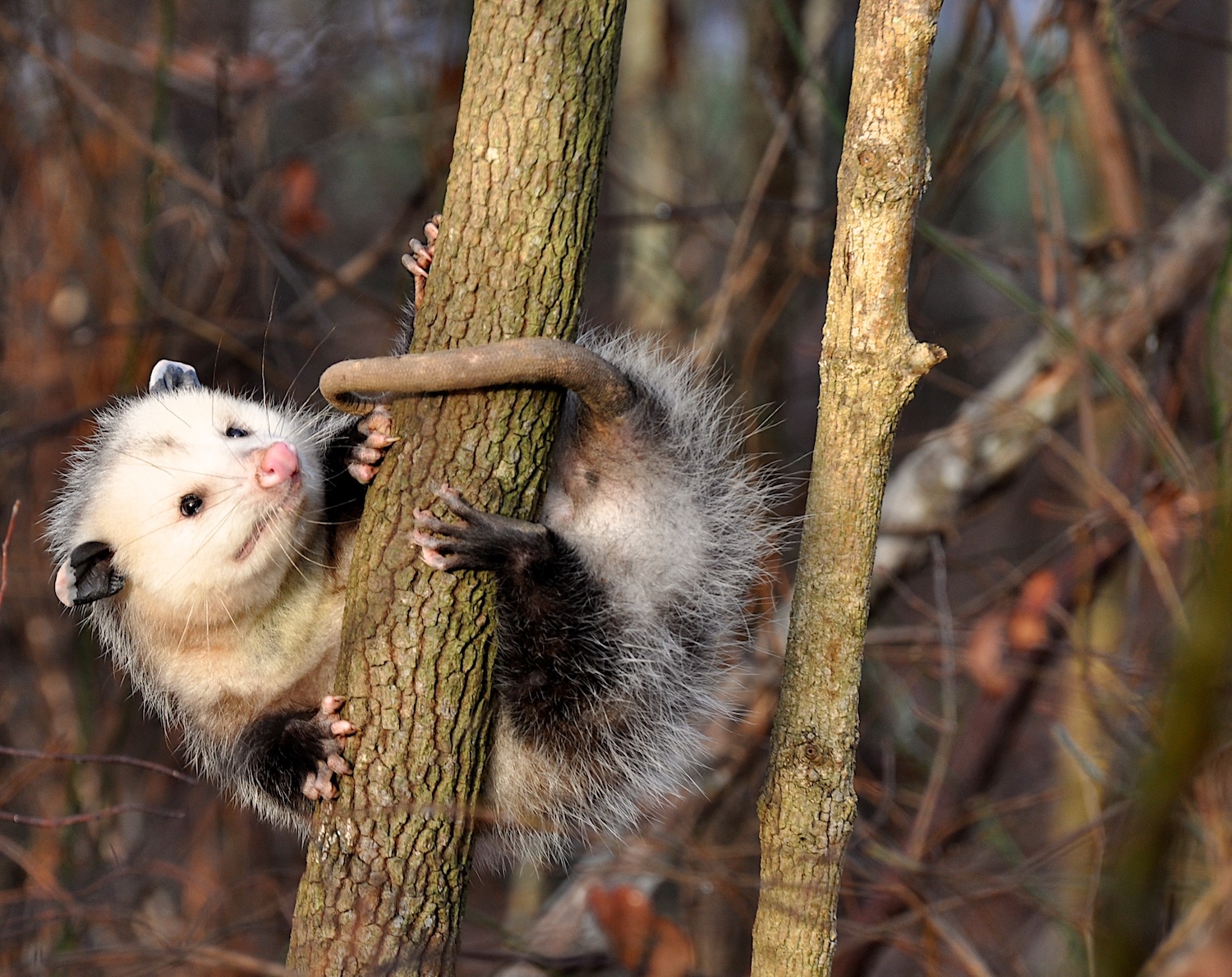Myth buster: Opossums don't really hang by their tails to sleep

Opossums have some unusual behaviors, but spending long periods hanging by their tails or sleeping while hanging by their tails isn't something they really do. It's a common misconception, and one that is perpetuated because of how these creatures are sometimes portrayed in cartoons.
Opossums have long, hairless tails that are reminiscent of rat tails. However, their tails aren't strong enough to support their weight while hanging from them, Indiana Public Media reports. They may be able to hang by them for a moment or two, and young opossums sometimes do, but not any longer than that because they do not have the muscle structure necessary to hold the position. The myth of them sleeping while hanging upside down by their tails just isn't true.
Still, though, their prehensile tails are impressive. They can use them much like a fifth limb to aid in climbing trees and other structures, according to the University of Michigan Animal Diversity Web. They can grasp things with their tails, and they use them to help balance and stabilize themselves. Although they can wrap their tails around branches and tree limbs, they aren't able to support their weight by hanging from them.
While their tails might not live up to the hype, another unusual behavior opossums engage in is absolutely true. They do play dead, a behavior that has been coined "playing possum." Playing dead is a defense mechanism for opossums, according to National Geographic. If an opossum is threatened by a potential predator such as a fox or dog, they'll sometimes flop onto the ground either with their eyes closed or staring off into the distance, looking as though they are dead.
Playing dead isn't just an act. When startled or threatened by predators, the opossums sometimes enter into this catatonic state in which they appear dead, Animal Diversity Web reports. It can last a minute or two or as long as six hours.
The playing dead act is what opossums are most well-known for, but it isn't very common practice. It's actually quite rare and usually done by younger animals, according to Animal Diversity Web. Opossums more commonly defend themselves by simply running away from predators.
